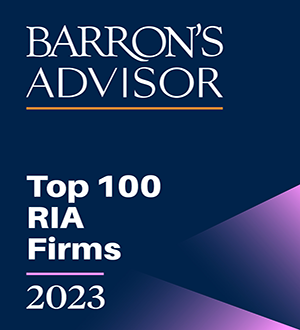Advanced Roth Conversion Strategies and Considerations
By Argent Wealth Management, LLC on November 15, 2023
Roth IRA vs. Traditional IRA

Roth Conversion Considerations
- Current vs. Future Tax Rates
- Tax equivalency principle
- Pre-tax income = after tax wealth regardless of account type when tax rates are the same
- However, there is opportunity to convert if your expected tax rate decreases…
Roth Conversion Example
- Contribution with a 25% current tax rate:
- $5,000 to Traditional IRA
- $3,750 to Roth IRA (less 25% in taxes)

- Pay your taxes whenever the tax rate will be lower, this is a permanent tax savings!
Roth Conversion Strategies
- Maximization strategies to consider
- Backdoor Roth Contributions
- Mega Backdoor Roth conversions from 401(k)
- Conversion-cost-averaging
- Systematic Partial Roth Conversion
Backdoor Roth Contribution Basics
- A backdoor Roth contribution is a retirement savings technique where an individual makes a non-deductible contribution to a Traditional IRA then after some time passes converts that contribution to a Roth IRA
- This allows high income earners who are phased out of direct Roth contributions to still make after tax contributions to their Roth IRAs
- However, beware of IRA Aggregation Rules: IRC 408(d)(2)
- This could result in unintended tax consequences!
- Timing of the conversion to Roth is also paramount to avoid Step Transaction treatment by the IRS!
Mega Backdoor Roth IRA
- Mega Backdoor Roth Technique
- Converting after-tax dollars from your employer sponsored plan (Note: not all employer plans allow post-tax contributions)
- IRS Notice 2014-54 allows after-tax dollars to be split
- Pre-tax dollars are sent to a rollover IRA while after-tax dollars are sent to a Roth IRA

Mega Backdoor Checklist
- Does the client’s current 401(k) or 403(b) plan offer a Roth option? If yes:
- Does the plan allow after-tax contributions beyond the annual elective deferral limit? If yes:
- Does the plan offer the ability to make in-plan conversions to Roth?
or
- Does the plan allow for in-service withdrawals of funds, essentially allowing employees to roll over after-tax contributions into an outside Roth IRA at a custodian of their choice?
- If yes to question 3 or 4, the client may want to consider making what are called “mega-Roth” contributions to the 401(k) or 403(b) by depositing additional funds up to the annual limit before year end, then converting those funds immediately to Roth, which will effectively allow super-funding of the Roth for more tax-free earnings.
Source: Journal of Accountancy; How Mega Backdoor Roth Works
Other Strategies and Considerations
- Conversion Cost Averaging
- Recharacterizations are no longer allowed so converting early and re-evaluating later is no longer a prudent strategy
- Instead, cost average in over time whether it be monthly or quarterly to hedge market volatility
- Partial Roth Conversions
- Harvest/accelerate conversions while in lower tax brackets (think retirement pre-SSI/RMD period, business loss year, layoffs)

Closing Thoughts
- Roth conversion strategies require thoughtful implementation to avoid unintended tax implications and results
- Tracking using form 8606 is paramount
- The strategies covered have multi-faceted implications on a client’s retirement plan (retirement cash flow, taxes, investments, estate planning)
- This should be an annual exercise for retirees specifically to effectively navigate years where they are in a lower tax bracket
- Consult a dedicated financial advisor to help you navigate the right strategy and outcome for you!

About the Author:
David Piccirilli, CPA*, CFP®
Senior Financial Advisor
David is a CERTIFIED FINANCIAL PLANNER™ and Certified Public Accountant who joined the firm in 2023 as a Senior Advisor. Prior to joining Argent, David worked at RSM US LLP within their private client services group before transitioning full time into their private wealth management practice. David has worked with business owners, C-suite executives, and high net worth families over his 10-year career. David attended Bryant University earning a bachelor’s degree in accounting prior to attending Bentley University’s McCallum Graduate School of Business where he earned a master’s degree in Financial Planning. David’s specialties include portfolio management, income tax, estate planning and financial planning. In his free time David enjoys golfing, cooking, and traveling.
Sign up to receive more information about Argent's Services and Solutions.
Argent Wealth Management, LLC is a group comprised of investment professionals registered with Hightower Advisors, LLC, an SEC registered investment adviser. Some investment professionals may also be registered with Hightower Securities, LLC (member FINRA and SIPC). Advisory services are offered through Hightower Advisors, LLC. Securities are offered through Hightower Securities, LLC.
This is not an offer to buy or sell securities, nor should anything contained herein be construed as a recommendation or advice of any kind. Consult with an appropriately credentialed professional before making any financial, investment, tax or legal decision. No investment process is free of risk, and there is no guarantee that any investment process or investment opportunities will be profitable or suitable for all investors. Past performance is neither indicative nor a guarantee of future results. You cannot invest directly in an index.
These materials were created for informational purposes only; the opinions and positions stated are those of the author(s) and are not necessarily the official opinion or position of Hightower Advisors, LLC or its affiliates (“Hightower”). Any examples used are for illustrative purposes only and based on generic assumptions. All data or other information referenced is from sources believed to be reliable but not independently verified. Information provided is as of the date referenced and is subject to change without notice. Hightower assumes no liability for any action made or taken in reliance on or relating in any way to this information. Hightower makes no representations or warranties, express or implied, as to the accuracy or completeness of the information, for statements or errors or omissions, or results obtained from the use of this information. References to any person, organization, or the inclusion of external hyperlinks does not constitute endorsement (or guarantee of accuracy or safety) by Hightower of any such person, organization or linked website or the information, products or services contained therein.
Click here for definitions of and disclosures specific to commonly used terms.


